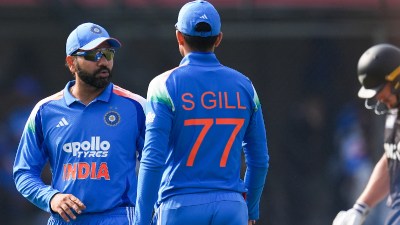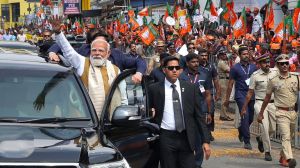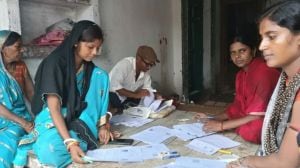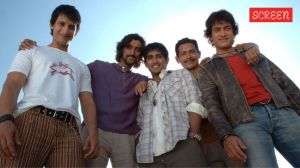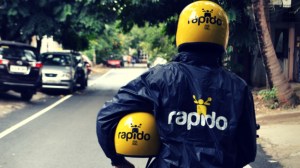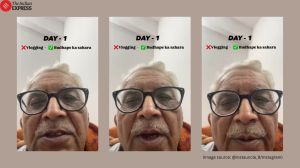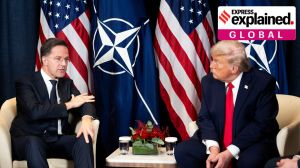Groundrules on Gujarat
Against the backdrop of the demolition of the Sufi shrine in Vadodara and the terrorist strike in Doda, the CPM8217;s message to the UPA is clear: firstly, the government cannot be a bystander...

Against the backdrop of the demolition of the Sufi shrine in Vadodara and the terrorist strike in Doda, the CPM8217;s message to the UPA is clear: firstly, the government cannot be a bystander and secondly, the Left8217;s support to the UPA was clearly to keep the BJP out and this must not be forgotten. A front page editorial in the latest 8216;People8217;s Democracy8217; says the recent terrorist incidents were certain to test the competence and commitment of the UPA government in dealing with such incidents. But it is the Gujarat violence that the CPM takes most seriously, saying this could be the 8220;curtain raiser for the 2007 assembly elections in the state8221;. According to the editorial, the UPA government8217;s task is cut out. It must ensure there is no repeat of the events of 2002 in Gujarat, and strengthen internal security. In a related article 8216;Gujarat: When will the UPA govt wake up?8217;, Nalini Taneja says the the centre was indifferent to the violence after the Sufi shrine was demolished. 8220;There has not been a single statement from the prime minister or any other senior leader of the Congress expressing concern at the blatant infringement of the constitutional and fundamental rights of citizens belonging to minority religious groups,8221; she says.
Nepal: The mountain road ahead
India had played a role in identifying the roadmap for Nepal8217;s future and, in his lead article on Nepal, CPM MP Sitaram Yechury points out that this had finally been implemented despite initial hiccups. But, he says, the road ahead was tough and it would be up to the interim government to overcome it. One of these was holding elections to the constituent assembly, for which the seven-party alliance and the Maoists needed to come to an agreement. A connected issue was the participation of Maoists in the elections, which would depend on the issue of disarming the Maoists before the elections.
According to Yechury, this went beyond the alliance parties and the Maoists. The Royal Nepal Army remained under the King8217;s command and 8220;any process of the disarming of the Maoists must be matched to the corresponding steps for the RNA,8221; the MP says. This was why placing the RNA under civilian control was important. The task ahead, he says, would be to transform the Himalayan kingdom to a modern democratic nation state.
More poll panel trouble
In Tamil Nadu, where some pollsters have predicted an upset win for the DMK-led Democratic Progressive Alliance, the CPM believes the AIADMK was only guided by political compulsion as it had entered into a competition with the DMK over sops to be given to voters. But, writes R. Govindarajan, the people would like to know why the AIADMK had not made the announcements while in office. In Tamil Nadu, as in West Bengal, the CPM was having trouble with the Election Commission, this time over putting party flags on memorials it had erected for its leaders that were reportedly removed on orders of election observers.
What receives special mention is the Cauvery Water Tribunal issue following a suggestion that new experts be appointed to go into the dispute. 8220;This is nothing but a ruse to postpone any decision for some more decades,8221; the writer says, adding that state was waiting for the final award. He puts the onus on the Centre to intervene and ensure the release of the final award of the tribunal.
8212; Compiled by Ananda Majumdar
- 01
- 02
- 03
- 04
- 05


